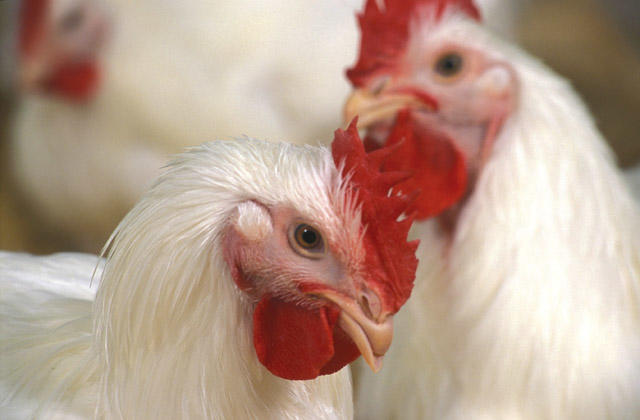
Section Branding
Header Content
Avian flu flare-ups in other states ruffle feathers in broiler heavyweight Georgia
Primary Content

April may be a good month to catch a glimpse of various duck species in Georgia on their way north, but some farmers and public health officials will be watching those flocks with suspicion rather than wonder.
Ducks are a major carrier of the highly pathogenic avian influenza, and eight waterfowl representing three duck species have been identified as carriers across Glynn, Camden and Hart counties since February, according to the U.S. Department of Agriculture.
Ducks usually do not get sick from the virus, but they can spread it to domesticated birds like chickens and turkeys, among whom it can be deadly. That threat has state officials on high alert in Georgia, which is one of the nation’s top broiler producers.
No cases of avian influenza have been found in commercial or domestic flocks in Georgia, but it has been a major problem in other states this year. Avian influenza, or bird flu, has been detected in commercial flocks in 26 states.
Georgia’s Department of Agriculture has been planning for a bad avian flu season since the last major outbreak in 2015 that saw more than 50 million birds culled.
Members of the industry, department workers and scientists have been cooperating to keep the virus out, said Georgia Commissioner of Agriculture Gary Black.
“We do regular tabletop exercises at the department with our team, regular maintenance on equipment, regular walkthroughs, and certainly since the advent of the disease this season, we’ve been on the most brilliant red alert you can imagine with our animal teams, working in concert with our Georgia poultry diagnostic laboratories.”
Since February, the state has suspended all poultry exhibitions, shows, sales, swaps and meets in an attempt to keep the state’s birds in pandemic bubbles.
“We hope that’s just temporarily, we’ve done it before, I think we did it back in 2017,” said Bo Warren, chief communications officer for the state Department of Agriculture. “What we’re trying to accomplish there is just to keep birds from different farms congregating together, whether that’s at a swap meet, bird show, flea market, or even a livestock barn. You can still buy and sell poultry, birds direct to each other, but we’re trying to prevent the public congregation of birds.”
Black said he’s confident in the plan his department has hatched.
“We’re the No. 1 poultry producing state in the nation, and so my commitment in doing this job has been that we would be the No. 1 best prepared,” he said.
There’s no need for chicken consumers to worry about their next wing or thigh, Black said.
“Georgians need to know, and this is important even with our trading partners around the globe, every flock of chickens, before it goes to market, is tested,” he said. “And so it’s not like we just suddenly find this. It’s an everyday vigilance with our laboratory network, and not just with (highly pathogenic avian influenza), but it’s also a host of other diseases.”
A lot of money could be at stake in preventing the spread in Georgia. Poultry makes up $28 billion of the state’s $75 billion agriculture industry, and top importers of U.S. poultry have restricted imports based on the birds’ state of origin.
Mexico and China have restricted trade by state, while Canada has limited its restrictions to areas that extend about six miles from infected sites.
Public health officials say another reason to prevent the spread is to lower the chances of the virus mutating to become dangerous to people. They warn that avian influenza viruses can spread from bird to human from exposure to infected livestock, though the risk of this happening is low, as is the risk of the virus developing a capability to effectively spread from human to human.
The Georgia Department of Public Health is monitoring the situation to make sure that what’s been happening with birds across the country this year does not happen with people, said state epidemiologist Dr. Cherie Drenzek at a board of public health meeting Tuesday.
“If indeed we see this transfer to people, it doesn’t belong there in the first place, it could change and evolve,” she said. “We want to be able to monitor that. We’ve had a lot of experience with other new viruses that have crossed the line into people. In China, since 2003, there have been outbreaks of avian influenza in people as well, of varying types over the years. And over the last few years here in the U.S., we’ve even seen swine flu viruses cross into and infect people at some agricultural fairs, primarily in the Midwest. So it can happen, but it’s never resulted in this sustained transmission or change, where we’ve gotten a brand new virus, but that’s what we keep an eye on.”
Drenzek said that involves keeping track of people who work with birds who become ill.
“Our role is really to be able to identify individuals, people that may have been exposed to these birds, either working directly with them or depopulating them if needed, and usually, they’re under protection, and PPE is appropriate, but we want to be able to monitor them for the development of any flu-like illness and facilitate testing.”
This story comes to GPB through a reporting partnership with Georgia Recorder.

